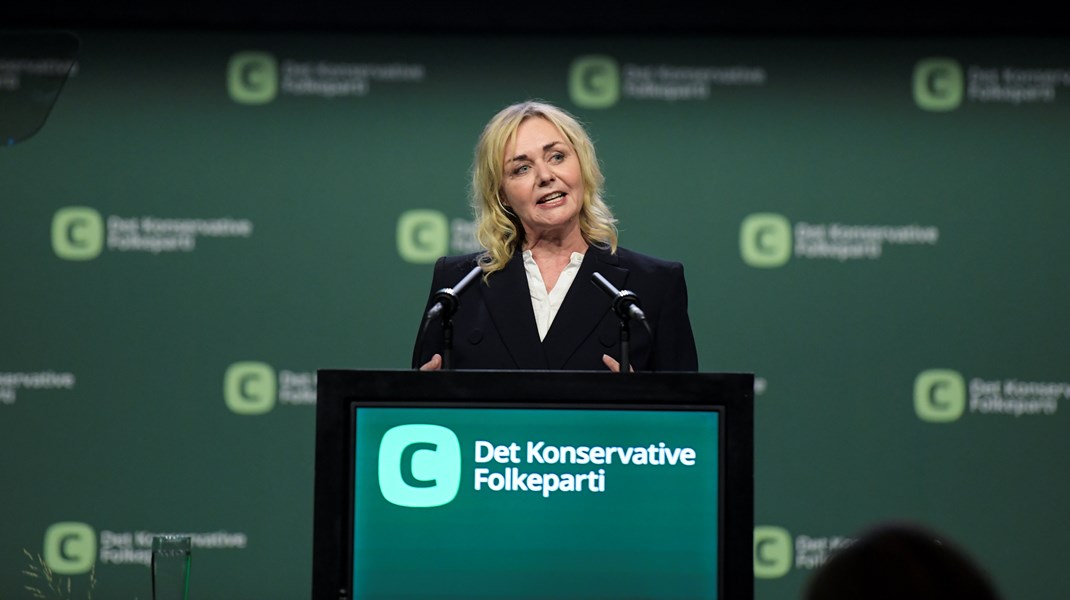Løkkes tale ved FN's klimatopmøde
DOKUMENTATION: Læs her statsminister Lars Løkke Rasmussens (V) tale ved klimamødet i New York.
Speech by H.E. Mr. Lars Løkke Rasmussen, Prime Minister of Denmark at the Closing Plenary Session of United Nations Summit on Climate Change in New York, September 22, 2009
Secretary General, dear colleagues,
It is not often we as leaders get a chance to chart out a new course for our planet. One of these rare moments is coming up this December.
At COP15 in Copenhagen we have a choice to make. The moment will be in our hands. We can either seize it - or we can let it go.
Whatever we choose - there is no doubt that future generations will judge us on our ability to make COP15 a decisive moment of change.
And I do believe we have a responsibility to the future generations. A responsibility to seal a deal in Copenhagen. And deliver a viable solution to one of the greatest challenges of our time.
In Copenhagen we must provide a fundamental response to climate change.
We should initiate a strong global cooperation to transform the world economy. And promote low carbon economic growth and sustainable development.
Our success depends on our ability to reach an agreement that is consistent with science.
In practical terms this means an agreement that limits the rise in global temperature to a maximum of 2 degrees Celsius.
Furthermore - the deal must be based on the principle of equity. It must support, not delay the fight against poverty. It shall be practicable and promote the vision of sustainable development. And it shall send a clear signal to industry to engage in the transition to a low carbon economy.
We have already come a long way. By now many countries have developed far reaching national emission reduction policies and low carbon development plans. And many others are on their way.
This is indeed encouraging. We are all taking action. We are all realizing that the green agenda is both vital to combat global warming and at the same time part of the response to the global economic crisis.
However - as we act, the challenge is also mounting. If we pool all our plans - if we sum up all the national emission reductions under way - the figures do not add up.
We have to acknowledge this harsh fact. And we have to face the only natural consequence: That we have to do more.
Jointly, we can achieve more than the sum of our individual contributions. That is why we need a global agreement.
Allow me to share with you my vision for a global agreement in Copenhagen.
It should be ambitious. It should be binding. It should correspond to the 2 degrees scenario. And it should constitute the overall political framework for future global efforts against climate change - based on the following 5 key elements:
1) First - Industrialized countries will have to commit to substantial reduction targets. Building on the perspective of 80 pct reduction by 2050. And ensuring binding reduction commitments in the near and medium term.
2) Second - Developing countries should commit to implement those domestic actions that are warranted for domestic reasons. And we should invite developing countries to estimate indicative figures for their projected future emission patterns. The latter in the form of a non committing element.
3) The third element is public financing. Developed countries should commit to finance overseas mitigation and adaptation efforts. And we should also accelerate international research in green technology - and facilitate its dissemination all over the world.
4) The fourth element will be market off-sets with an indication of emission reductions purchased abroad through the carbon market.
5) And finally as the fifth element - we must ensure the credibility by integrating an MRV system as part of the agreement. Transparency and mutual trust are key words in this regard.
It could be obtained by a system where both developed and developing countries collect and register information to document their individual efforts. That would be an important confidence builder. And it would establish an important direct link between funding and actions.
Concluding a political agreement of this magnitude requires full engagement at the highest political level - as underlined by President Obama and President Hu Jintao this morning.
I am encouraged by the determination demonstrated by all of you today and indeed over past months.
Thank you for your vision. Thank you for your commitment to a positive outcome in December.
And thank you, Secretary General, for convening our meeting today. Your personal leadership will strengthen our common effort in the run up to Copenhagen.
The political will is there. But the agreement is not.
In the coming days and weeks we need progress at unprecedented pace.
Success will depend critically on the continued engagement of Heads of States and Governments.
As we approach a global agreement, Denmark intents to invite all Heads of States and Governments to come to Copenhagen and close COP15 at the summit level.
Transforming our individual political commitments into a global agreement will take collective political determination at an unprecedented scale.
It is necessary. It is doable. And it is in our hands.
December is the time. Copenhagen is the venue.
I welcome you all to COP15.
Thank you.

 Rapport: Danmark er førende på IT-sundhedsområdet
Rapport: Danmark er førende på IT-sundhedsområdet
